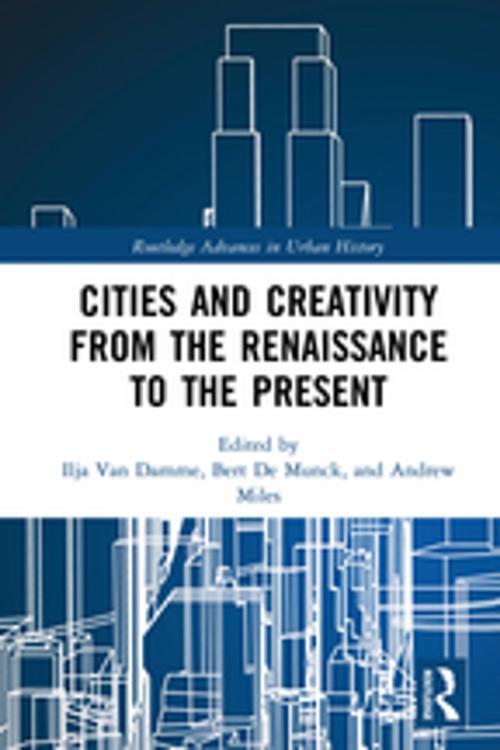| Author: | ISBN: | 9781351681797 | |
| Publisher: | Taylor and Francis | Publication: | September 18, 2017 |
| Imprint: | Routledge | Language: | English |
| Author: | |
| ISBN: | 9781351681797 |
| Publisher: | Taylor and Francis |
| Publication: | September 18, 2017 |
| Imprint: | Routledge |
| Language: | English |
This volume critically challenges the current creative city debate from a historical perspective. In the last two decades, urban studies has been engulfed by a creative city narrative in which concepts like the creative economy, the creative class or creative industries proclaim the status of the city as the primary site of human creativity and innovation. So far, however, nobody has challenged the core premise underlying this narrative, asking why we automatically have to look at cities as being the agents of change and innovation. What processes have been at work historically before the predominance of cities in nurturing creativity and innovation was established? In order to tackle this question, the editors of this volume have collected case studies ranging from Renaissance Firenze and sixteenth-century Antwerp to early modern Naples, Amsterdam, Bologna, Paris, to industrializing Sheffield and nineteenth-and twentieth century cities covering Scandinavian port towns, Venice, and London, up to the French techno-industrial city Grenoble. Jointly, these case studies show that a creative city is not an objective or ontological reality, but rather a complex and heterogenic "assemblage," in which material, infrastructural and spatial elements become historically entangled with power-laden discourses, narratives and imaginaries about the city and urban actor groups.
This volume critically challenges the current creative city debate from a historical perspective. In the last two decades, urban studies has been engulfed by a creative city narrative in which concepts like the creative economy, the creative class or creative industries proclaim the status of the city as the primary site of human creativity and innovation. So far, however, nobody has challenged the core premise underlying this narrative, asking why we automatically have to look at cities as being the agents of change and innovation. What processes have been at work historically before the predominance of cities in nurturing creativity and innovation was established? In order to tackle this question, the editors of this volume have collected case studies ranging from Renaissance Firenze and sixteenth-century Antwerp to early modern Naples, Amsterdam, Bologna, Paris, to industrializing Sheffield and nineteenth-and twentieth century cities covering Scandinavian port towns, Venice, and London, up to the French techno-industrial city Grenoble. Jointly, these case studies show that a creative city is not an objective or ontological reality, but rather a complex and heterogenic "assemblage," in which material, infrastructural and spatial elements become historically entangled with power-laden discourses, narratives and imaginaries about the city and urban actor groups.















